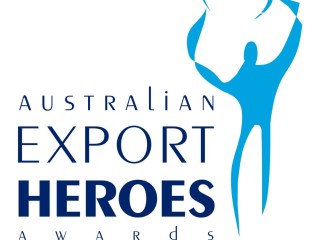 Two important international trade decisions announced late on Friday will have significant implications for Australian beef exports.
Two important international trade decisions announced late on Friday will have significant implications for Australian beef exports.
After 18 years of negotiations, Russia is to join the World Trade Organisation, binding the world’s 11th largest economy to certain trade rules that it has up to now sometimes ignored.
In Japan, after considerable political debate, Prime Minister Yoshihiko Noda finally confirmed that Japan will join negotiations on the US-backed Trans-Pacific Partnership free trade bloc.
Federal trade minister Craig Emerson said Russia’ entry into the WTO would be a boon for Australian exporters.
The conclusion of talks, announced in Geneva, means that a country of more than 140 million people will join the other 153 members of the WTO. Trade ministers will formally approve the accession agreement at the WTO ministerial conference in Geneva next month.
"This is an exciting development for Russia, Australia and the global trading system," Dr Emerson said.
"Membership of the WTO is a commitment to play by a set of rules designed to make trade free and fair for all members. It often involves tough domestic reforms.”
Russia's WTO accession will guarantee improved market access for Australian exporters of agriculture, manufacturing and services. In agriculture, there will be progressively improved tariff conditions for beef, lamb, dairy and hides.
As part of its accession commitments, Russia has agreed not to introduce agricultural export subsidies, while some existing import tariffs will be lowered as soon as WTO membership becomes effective.
MLA manager, market access Andrew McCallum, said Russia had a tariff rate quota regime on beef, and the WTO accession would mean those commitments would continue under current arrangements.
"Australia will have access to a shared pool of frozen beef global quota totalling 407,000t, continuing the status quo, and access to an expanded chilled beef quota of about 11,000t under most favoured nation arrangements.
"The key thing in Russia joining the WTO is that it provides more certainty around that regime," Mr McCallum said.
"The WTO rules-based system provides greater confidence in the market, going forward."
Asked whether it provided any protection against major market collapse and Russian importers abandoning contracts as was seen in 2008, Mr McCallum said it did not, as that was due to the global finance/credit problems of the day, and not anything to do with trading rules.
Japan to join TPP dialogue
Meanwhile, Japan’s confirmation on Friday that it will join the Trans-Pacific Partnership Agreement (TPP) will create a regional trading bloc about 40 percent larger in size than the European Union.
The move is a substantial boost to liberalising trade around the Asia-Pacific region.
Federal trade minister Emerson said the TPP was more than a traditional trade agreement, as it would deal also with behind-the-border impediments to trade and investment.
He said a comprehensive, high-quality TPP agreement would be essential in ensuring it was in Australia's national interest.
"Having the world's third-largest economy commit to such an ambitious project is an extremely positive development," he said.
The question of joining the TPP had sparked considerable controversy in Japanese political circles, with strong opposition both within Prime Minister Noda’s own party and the Japanese agricultural lobby. He made the announcement just before departing for the APEC leaders meeting in Hawaii.
Prime Minister Noda said the agreement offered Japan the best chance to capitalise on better access to emerging markets in a dynamic region that was providing much of the world’s GDP growth.
Joining the TPP would force Japan to slash agricultural trade barriers impacting Australian exports, and whose removal is a precondition for the long-awaited Japan-Australia bilateral Free Trade Agreement.
The TPP is aimed at creating a tariff-free Asia-Pacific, a region accounting for 55pc of global Gross Domestic Product, and 43pc of global trade. It was born out of a smaller agreement involving Chile Singapore, Brunei and New Zealand. Australia, the US, South Korea, Malaysia, Vietnam, and now Japan, are all on-course to join the alliance.
This week’s APEC meetings in Hawaii are expected to include discussions between leaders of the TPP countries that could lead to a broad framework for advancing the agreement.
While Australia has bipartisan support for the pact, its eventual ratification in the US and Japan could prove more challenging, analysts say.
Dr Emerson said the TPP had the potential to form a building block for free trade across the Asia-Pacific region and would contribute to Australia's efforts to achieve global trade liberalisation.
MLA's Andrew McCallum said the TPP announcement was a signal that Japan was looking to enhance its trading relationship with all the stakeholder countries, including Australia.
"That's important, because TPP involves a commitment to looking at trade reform, and reducing tariffs and other barriers to trade," he said.
Australia's bilateral Free Trade Agreement with Japan had been in progress since 2007, but had been postponed after the April Tsunami and earthquake disasters.
"To date, Japan has had some issues regarding reform of agriculture, so it is something they have to address internally. But the signals are there that Japan is moving in the right direction.
"Now that Japan has made its TPP anouncement, Australia will be looking for an early resumption to discussions on our bilateral FTA," Mr McCallum said.
He said the TPP progress in no way negated any need for a comprehensive bilateral agreement between Japan and Australia.
"A TPP framework has been established, but we are yet to see the detail behind that. The bilaterial FTA goes much deeper, in terms of a range of access arrangements."
